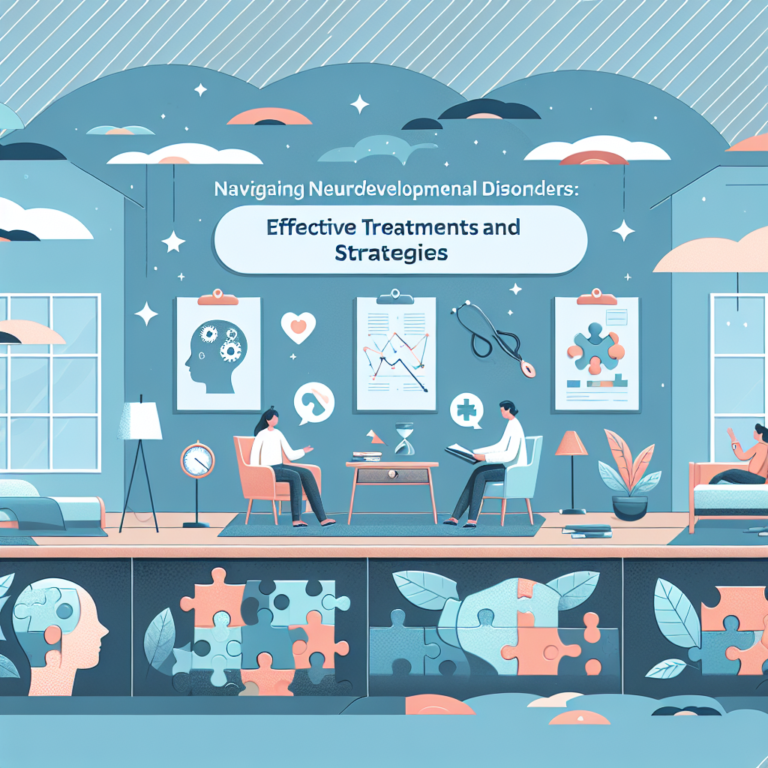
The Silent Struggle: How Chronic Illness Affects Mental Well-Being
Introduction
In a world thriving on productivity and constant motion, the struggles faced by those living with chronic illness often go unseen. While the physical symptoms are stark and undeniable, the mental toll can be equally harrowing yet remains cloaked in silence. The Silent Struggle: How Chronic Illness Affects Mental Well-Being is an exploration of this overlooked battleground. Chronic illness doesn’t just invade daily routines; it erodes mental resilience, fuels anxiety, and can plunge individuals into deep states of despair. It’s time to break the silence and bring light to this vital conversation.
Understanding Chronic Illness and Its Impact
Chronic illness refers to health conditions that persist over long periods, often for a lifetime. Examples include diabetes, lupus, fibromyalgia, and chronic fatigue syndrome. These illnesses can severely limit a person’s lifestyle, leading to significant alterations in social, occupational, and personal capacities. While the physical symptoms are vast and varied, the mental implications are equally profound.
The Intersection of Physical and Mental Health
Studies have shown a strong correlation between chronic illness and mental health challenges. Those with chronic pain, for instance, are more likely to experience anxiety and depression. According to a study published in the Journal of Pain Research, individuals suffering from chronic pain were found to have nearly twice the risk of developing anxiety disorders compared to those without chronic pain. This reinforces the notion that The Silent Struggle: How Chronic Illness Affects Mental Well-Being extends beyond mere discomfort—it encroaches upon the very fabric of one’s mental health.
Case Study: Emily’s Story
Emily, a 35-year-old woman diagnosed with rheumatoid arthritis, vividly describes her experience. "I used to be outgoing and social, but the pain kept me in bed. I felt isolated, and along with that isolation came overwhelming feelings of anxiety and sadness. I never thought chronic illness could mess with my mind this much."
Emily’s story sheds light on the emotional rollercoaster of living with a chronic illness. Her struggles are not uncommon, reflecting a shared experience among thousands who endure similar battles daily.
Mental Health: A Forgotten Aspect in Chronic Illness Care
While physical symptoms often attract medical attention, mental health considerations are frequently sidelined. This neglect can aggravate the psychological effects of chronic illnesses, leading to a vicious cycle of pain and depression.
Table 1: The Overlap Between Chronic Illness and Mental Health Disorders
| Chronic Illness | Common Mental Health Issues |
|---|---|
| Fibromyalgia | Anxiety, Depression |
| Diabetes | Depression, Stress |
| Multiple Sclerosis | Anxiety, Cognitive Dysfunction |
| Chronic Fatigue Syndrome | Depression, Sleep Disorders |
This table illustrates the alarming overlap between chronic illnesses and mental health issues. Understanding this relationship is foundational to addressing The Silent Struggle: How Chronic Illness Affects Mental Well-Being.
The Psychological Symptoms of Chronic Illness
Chronic illness can lead to a range of psychological symptoms, including:
- Anxiety: Fear of worsening symptoms or complications can be debilitating.
- Depression: Persistent fatigue and isolation often lead to low moods and despair.
- Stress Disorders: The ongoing burden of illness can result in chronic stress responses.
- Cognitive Dysfunction: Often called "brain fog," patients report difficulties with concentration and memory.
Case Study: John’s Journey
John, a 45-year-old man living with diabetes, faced intense anxiety after each doctor’s visit. "Every time I went, I dreaded hearing about my blood sugar levels. The uncertainty weighed heavily on me and often left me feeling as if I was on an emotional cliff," he shares.
John’s experience illustrates how fear and uncertainty add to The Silent Struggle: How Chronic Illness Affects Mental Well-Being. Such anxiety can exacerbate physical symptoms, leading to a feedback loop of worsening health.
Coping Strategies for Managing Mental Health
Fortunately, there are coping strategies that can help individuals navigate The Silent Struggle: How Chronic Illness Affects Mental Well-Being. These methods focus on fostering resilience and building a support network.
1. Seeking Professional Help
Therapy can be instrumental in addressing both chronic illness and mental health struggles. Cognitive Behavioral Therapy (CBT) has shown significant effectiveness in treating anxiety and depression in chronic illness patients.
2. Building a Support Network
Connecting with others can alleviate feelings of isolation. Support groups, whether in-person or online, provide spaces where individuals can share their stories and coping strategies.
3. Mindfulness and Meditation
Practicing mindfulness can significantly reduce stress and anxiety levels. Techniques such as meditation and deep breathing can improve emotional regulation, helping individuals manage chronic illness better.
4. Regular Physical Activity
Gentle exercises, such as yoga or swimming, can have tremendous mental health benefits. Physical activity releases endorphins, which are known to improve mood.
5. Healthy Nutrition
Nourishing the body with a balanced diet can contribute to improved mental health. Foods rich in Omega-3 fatty acids, antioxidants, and vitamins can play a significant role in brain function.
Chart 1: Practical Coping Strategies and Their Benefits
| Coping Strategy | Benefits |
|---|---|
| Therapy | Provides coping mechanisms |
| Support Networks | Reduces feelings of isolation |
| Mindfulness | Lowers stress levels |
| Regular Exercise | Enhances mood and energy levels |
| Proper Nutrition | Supports brain health |
This chart summarizes various coping strategies and their tangible benefits for those confronting The Silent Struggle: How Chronic Illness Affects Mental Well-Being.
The Role of Advocacy and Awareness
Raising awareness about the intersection of chronic illness and mental health is essential. Many people remain unaware of the extensive mental toll such illnesses can have, often labeling individuals as “weak” or “overly dramatic.”
Case Study: Sarah’s Advocacy Work
Sarah, who has lived with lupus for over a decade, became an advocate for mental health awareness within chronic illness communities. "I found that speaking up about my mental health struggles encouraged others to share their stories. It bridged a gap, showing we weren’t alone."
Through advocacy, Sarah has fostered understanding and compassion among those affected by chronic illness, allowing for healthier conversations about mental well-being.
Cultivating Emotional Resilience
Resilience isn’t just about bouncing back; it’s about adapting to life’s challenges and emerging stronger. Emotional resilience can significantly mitigate the mental health impacts of chronic illness.
Tactics for Building Resilience
- Accepting Your Condition: Acknowledgment can lead to empowerment.
- Focusing on Positivity: Engage in activities that can induce joy and a sense of achievement.
- Setting Realistic Goals: Break tasks into manageable steps to avoid overwhelm.
- Practicing Gratitude: Regularly reflecting on positive aspects of your life can pave the way for peace.
Transitioning Towards a Healthier Mental State
Change is possible. Individuals living with chronic illness can foster a brighter future for their mental well-being through commitment and support.
Conclusion
The struggle with chronic illness encompasses much more than physical limitations. The Silent Struggle: How Chronic Illness Affects Mental Well-Being demands our attention and empathy. By recognizing the intricate link between physical and mental health, we can pave the way for better support systems, advocate for mental health resources, and foster resilience among those affected.
Final Takeaway
The journey is challenging, but hope is palpable. Together we can amplify the conversation and break the silence surrounding the dual impacts of chronic illness. Let’s not just survive; let’s thrive.
FAQs
1. How can chronic illness lead to mental health issues?
Chronic illness can lead to mental health challenges due to social isolation, physical pain, and the ongoing burden of managing symptoms, all of which contribute to anxiety and depression.
2. Is therapy beneficial for those with chronic illness?
Yes, therapy can help individuals develop coping strategies to manage both their physical and mental challenges, making it an essential component of holistic care.
3. What role does support play in managing chronic illness?
Having a support network can significantly reduce feelings of isolation and sadness, providing emotional backing and shared experiences that promote healing.
4. How can mindfulness help individuals with chronic illness?
Mindfulness techniques can lower stress levels and improve emotional regulation, making it easier to cope with the daily hurdles posed by chronic illness.
5. What are some practical coping strategies for managing mental well-being?
Some effective strategies include seeking therapy, building a support network, practicing mindfulness and meditation, engaging in regular physical activity, and maintaining a healthy diet.
By addressing The Silent Struggle: How Chronic Illness Affects Mental Well-Being, we not only enhance awareness but also cultivate compassion and create pathways for healing. Remember that you’re not alone in this journey. Together, we can speak up, uplift, and transform lives.













